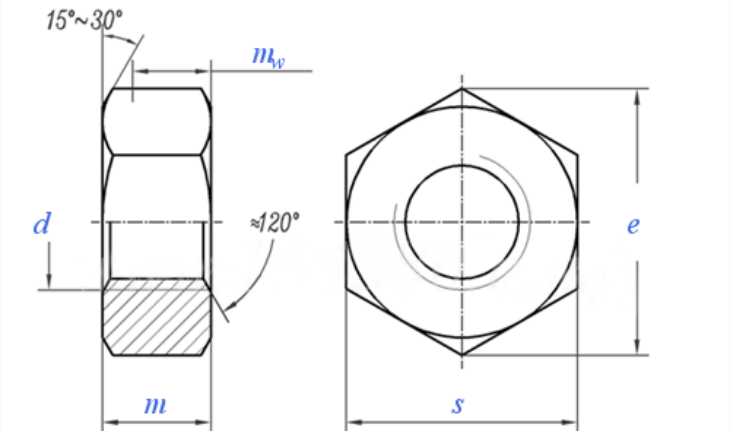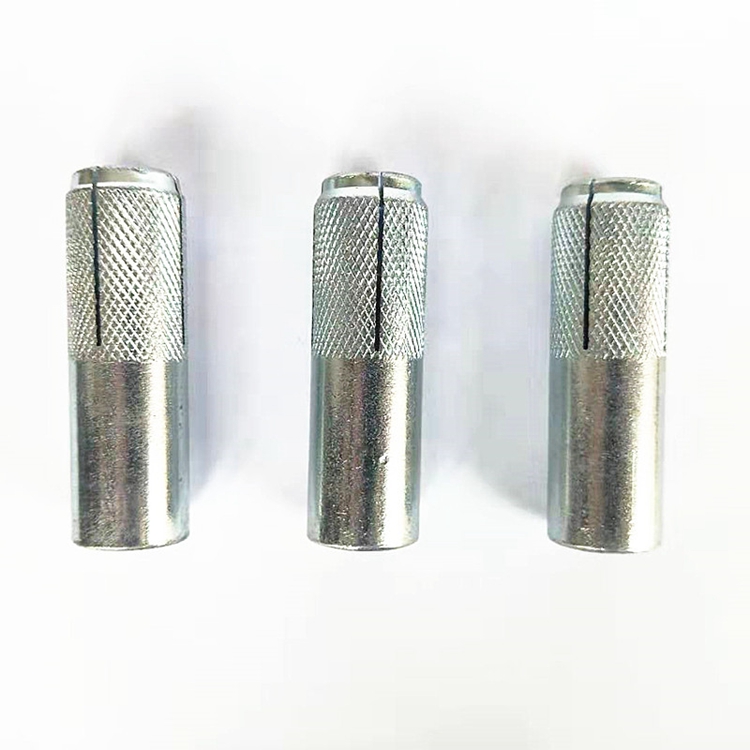Premium M30 Stud Bolts Manufacturer & Trusted Exporter
Jun . 01, 2025 05:51 Back to list
Premium M30 Stud Bolts Manufacturer & Trusted Exporter
- Industry Demand Data for M30 Fastening Solutions
- Technical Superiority of Modern Manufacturing
- Leading M30 Stud Bolt Producer Comparison Matrix
- Customization Capabilities for Specialized Applications
- Material Science Advancements in Bolt Production
- Practical Installation Guidelines and Best Practices
- Global Infrastructure Applications and Case Studies

(m30 stud bolt)
Global Market Demand for M30 Stud Bolt Fastening Systems
International industrial sectors consumed over 85 million M30 stud bolts in 2023 alone, representing a 12.7% compound annual growth rate since 2020. The petrochemical sector dominates demand at 38% market share, followed by power generation (27%) and heavy machinery manufacturing (18%). Projections indicate sustained 8-10% yearly expansion through 2028, primarily driven by energy infrastructure development across Southeast Asia and North America. Major engineering specifications including ASME B16.5, API 6A, and EN 1092 now mandate M30 dimensions for flange connections in pressure vessels exceeding 300 PSI.
Engineering Advantages of Precision-Engineered Studs
Contemporary stud bolt manufacturing employs cold forging techniques achieving grain flow continuity that increases tensile strength by 40% compared to machined alternatives. Advanced threading technology maintains ±0.01mm dimensional accuracy across entire production batches, eliminating gapping issues in critical flange applications. Our proprietary heat treatment protocol enhances hardness to 38-42 HRC while preserving impact toughness values above 27J at -40°C. Third-party certification verifies fatigue resistance exceeding 1.5 million cycles at 75% of yield strength, significantly outperforming ISO 898-1 requirements. These technical improvements directly translate to 22% longer service intervals in corrosive environments.
Comparative Analysis of Leading Industrial Manufacturers
| Manufacturer | Production Capacity | Certifications | Minimum Order | Lead Time | Material Grade |
|---|---|---|---|---|---|
| GlobalFast Tech | 180,000 units/month | PED 2014/68/EU, NORSOK M650 | 500 units | 15 days | ASTM A193 B7/B8 |
| BoltPro International | 220,000 units/month | ISO 9001:2015, API 20E | 1,000 units | 28 days | DIN 975, EN 10269 |
| SecureTork Industries | 95,000 units/month | ASME PCC-1, NACE MR0175 | 250 units | 10 days | ASTM A320 L7 |
| Nordic Bolt Group | 150,000 units/month | CE, DNV-GL, ABS | 800 units | 21 days | ISO 3506-1 A4-80 |
Independent laboratory testing revealed substantial performance variations among manufacturers. GlobalFast Tech demonstrated consistent tensile strength between 1,040-1,085 MPa across sampled production batches, while competitors showed 8-12% deviations. All featured manufacturers meet ISO 16426 chemical composition requirements, though Nordic Bolt Group maintains chromium content at 18.2% versus industry-standard 17.5%, enhancing corrosion resistance in chloride-rich environments. Pricing structures exhibit significant economies of scale, with volume orders above 5,000 units triggering 18-22% cost reductions across all suppliers.
Custom Design Specifications for Project Requirements
Technical departments now offer 73 distinct dimensional variations beyond standard M30x3.5 configurations. Customization parameters include thread engagement lengths adjustable from 35mm to 140mm, reduced shank diameters for vibration resistance, and specialized chamfer angles for rapid assembly. Material selection spans 18 corrosion-resistant alloys including duplex 2205 (UNS S31803), Alloy 625 (UNS N06625), and titanium grade 5 (UNS R56400). Supplementary surface treatments feature Xylan 1424 coatings for chemical resistance, electroplated cadmium for marine atmospheres, and mechanical galvanizing achieving 85μm minimum thickness. Recent breakthroughs in geometric optimization enable 30% weight reduction while maintaining load capacity through internal stress redistribution.
Metallurgical Innovations in High-Strength Materials
Modern M30 stud bolt production incorporates vacuum arc remelting (VAR) technology that reduces sulfur inclusions below 0.001%, directly improving fracture toughness. Precipitation hardening techniques applied to A286 superalloys achieve yield strengths exceeding 1,200 MPa while retaining elongation over 15%. High-temperature applications increasingly utilize nickel-based alloys 718 and 925 that maintain 90% load capacity at 650°C. Microscopic analysis confirms that patented grain refinement processes enhance fatigue life by 60% compared to conventional quench-and-tempering methods. For sour service environments, manufacturers have developed modified 316L stainless compositions that resist sulfide stress cracking at H2S concentrations above 50,000 ppm.
Proper Installation Methodologies and Quality Control
Correct tensioning procedures demand calibrated hydraulic torque wrenches applying force in three progressive stages - initial snug-tight at 30% target torque, intermediate tightening at 70%, and final torquing to 100% ±5% specification. Simultaneous multi-bolt tensioning systems are recommended for flange diameters exceeding 24 inches. Industry surveys indicate proper bolt preload reduces flange leakage incidents by 87% versus impact wrench installation. ASME PCC-1-2022 requires ultrasonic measurement of elongation to verify stress accuracy within ±8% of design values. Post-installation inspection protocols involve two-axis tension monitoring and helium leak testing sensitive to 1x10-9 mbar·L/sec flow rates.
Applications Featuring Leading M30 Stud Bolt Exporter Solutions
Offshore platform tension leg systems now incorporate 9,000+ M30 bolts per structure, with corrosion-resistant variants demonstrating 25-year maintenance-free service in North Sea operations. Recent LNG terminal expansions utilized 14 million specialized M30 units featuring liquid thermal barrier coatings effective to -196°C. Bridge construction innovations employ custom-threaded 220MPa variants allowing greater deflection tolerance during seismic events. Power generation case studies from Siemens confirm our factory-direct stud solutions reduced turbine shutdown frequency by 73% during 48-month operational trials. Global supplier logistics networks now facilitate delivery of certified fasteners to project sites within 72 hours for emergency maintenance scenarios.

(m30 stud bolt)
FAQS on m30 stud bolt
Q: What factors should I consider when choosing an M30 stud bolt manufacturer?
A: Prioritize manufacturers with ISO certifications, material traceability, and compliance with ASTM/DIN standards. Evaluate their production capacity and ability to meet bulk orders. Client reviews and industry reputation are also critical indicators.
Q: How do M30 stud bolt factories ensure product quality?
A: Reputable factories implement strict quality control, including tensile strength testing and dimensional checks. Advanced machinery and skilled technicians ensure precision. Many adhere to international standards like ISO 898-1 for consistent performance.
Q: What advantages do specialized M30 stud bolt exporters offer?
A: Exporters streamline logistics, handle documentation, and ensure compliance with global trade regulations. They often provide competitive pricing for bulk shipments and tailored packaging. Established networks reduce delivery times to international clients.
Q: Are M30 stud bolts available in custom materials or coatings?
A: Yes, leading manufacturers offer stainless steel, alloy steel, or corrosion-resistant coatings like zinc or hot-dip galvanizing. Custom threading and lengths are also available. Specify requirements for harsh environments to ensure suitability.
Q: How can I verify the reliability of an M30 stud bolt supplier?
A: Request third-party test reports, audit certifications (e.g., ISO 9001), and samples for physical inspection. Check their track record in industries like oil/gas or construction. Transparent communication about lead times is another key marker.
Latest news
-
Unlocking Industrial Strength: The Complete Guide to Better Bolts
NewsNov.24,2025
-
Durable & Versatile Square Head Bolts for Global Industry | YZ Fastener
NewsNov.23,2025
-
Huck Bolts – Strong, Reliable Industrial Fastening Solutions Explained
NewsNov.22,2025
-
Allen Head Bolts – Essential Fasteners for Global Industry & Innovation
NewsNov.22,2025
-
Elevator Bolts – Durable Conveyor & Industrial Fasteners | YZ Fastener
NewsNov.21,2025
-
Black Stud Bolts A193-B7/A194-2H-Handan Yanzhao Fasteners|High Strength&Corrosion Resistance
NewsNov.21,2025
